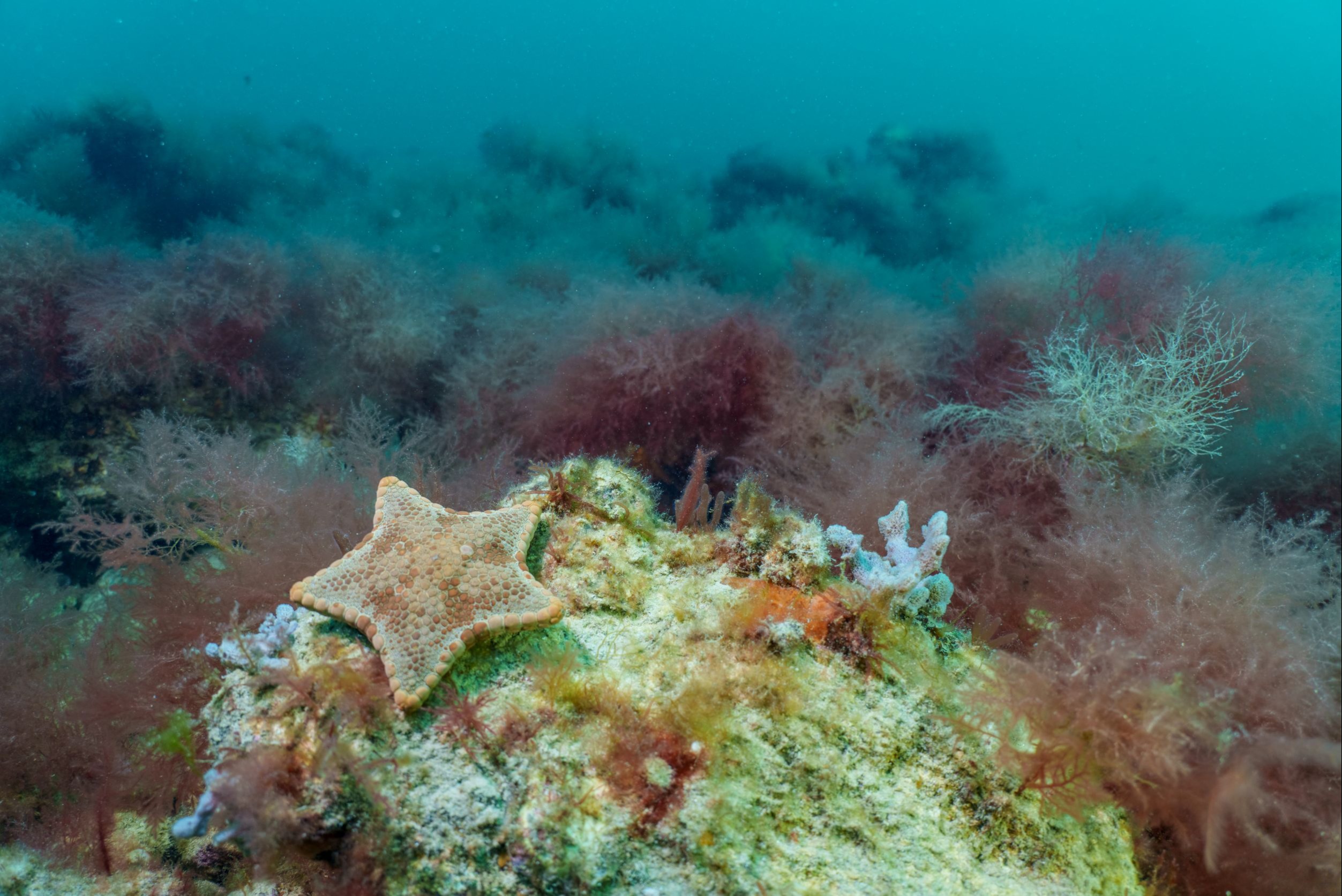
Fund amount:
$180,000
Program area:
Biodiversity Conservation
Location:
Southern Peninsula
Year:
2022
21 Feb 2023
The Ross Trust is helping a leading conservation organisation to continue its work of creating a healthier, more biodiverse, and resilient Port Phillip Bay through marine restoration.
The Trust will provide $180,000 over two years to support The Nature Conservancy Australia (TNC) to develop restoration technologies that can speed up the recovery of marine ecosystems.
‘The Victorian Ocean Resilience and Recovery Program’ will develop new hatchery production methods for giant kelp, golden kelp and the reef species, doughboy scallops. New in-water restoration methods for golden kelp and scallops on existing Dromana shellfish reefs will then be trialled.
Simon Branigan, TNC’s Marine Restoration Lead, says the project is an exciting collaboration with SeaGen Aquaculture, a conservation aquaculture social enterprise.
“This restoration initiative will continue to improve Port Phillip Bay’s biodiversity and water quality, help recover vulnerable ecosystems and boost fish stocks,” he says.
Simon, who will manage the project, has overseen the restoration of shellfish reefs across Australia, working towards TNC’s ambition to bring shellfish reef ecosystems back from the brink of extinction.
“Currently, Victoria is ill-equipped to recover threatened marine species and ecosystems at the pace and scale required to address biodiversity loss,” he says, pointing out that Victoria has 14 marine species and three ecosystems threatened or endangered.
“Australia is ranked fourth highest in global species extinctions, and 100 marine species and four ecosystems are listed as vulnerable or endangered.
“We know there has been a 99% loss of giant kelp forests across Australia and up to 90% loss of golden kelp within some areas of Port Phillip Bay.”
Simon says that marine habitat degradation has been caused by factors including unprecedented catastrophic events such as floods, bushfires, and marine heatwaves, and the introduction of marine pests. Historically, over-harvesting since European colonisation has also had a significant impact, he says.
“We desperately need to strengthen the entire restoration supply chain if we are to achieve the pace and scale needed to recover degraded marine ecosystems this decade,” he says. “This includes the production in hatcheries of the marine species we use in restoration, just as commercial tree nurseries can accelerate forest restoration.”
Simon says that TNC is the only organisation restoring marine ecosystems on a large scale, both in Victoria and Australia-wide.
“This is a unique project given the partnership with SeaGen Aquaculture, which has a conservation aquaculture facility on Phillip Island, specifically set up to pioneer cost-effective hatchery cultivation technologies,” he says.
The project will see the team develop and then test the technologies on the Dromana reef, as well as engage at least 50 community volunteers to take part in information sessions, shell cleaning, and facility tours.
The Ross Trust CEO Sarah Hardy says TNC had been invited to apply for a second two-year grant after the
excellent implementation and relevance outcomes of its previous grant.
“We expect this project to demonstrate that the marine conservation sector can successfully partner with social enterprises to expand marine restoration, as well as collaborate with other NGOs, government and universities, and introduce citizen science programs,” Sarah says.
Read more: https://www.natureaustralia.org.au/about-us/where-we-work/victoria/
Image by:- The Nature Conservancy